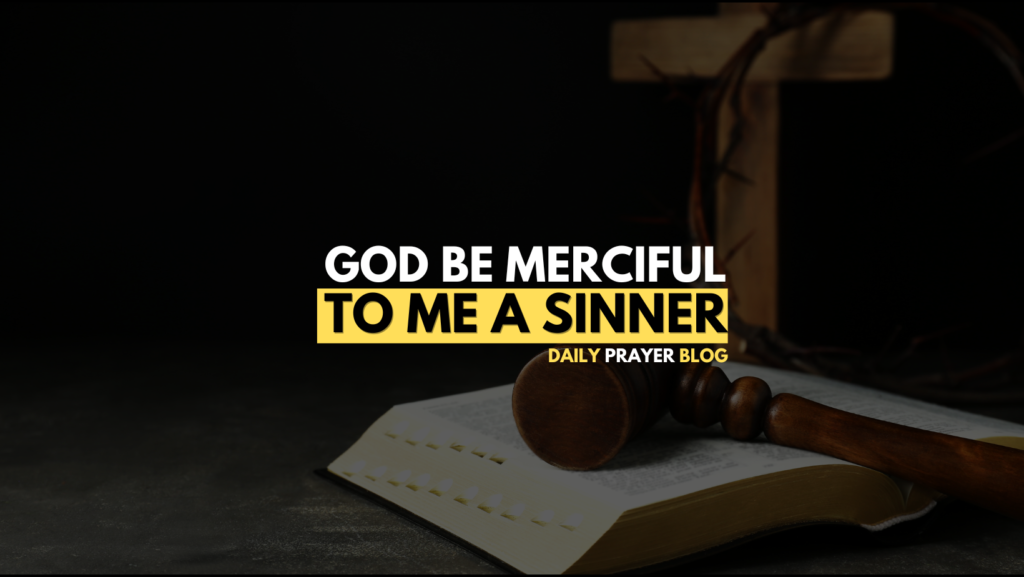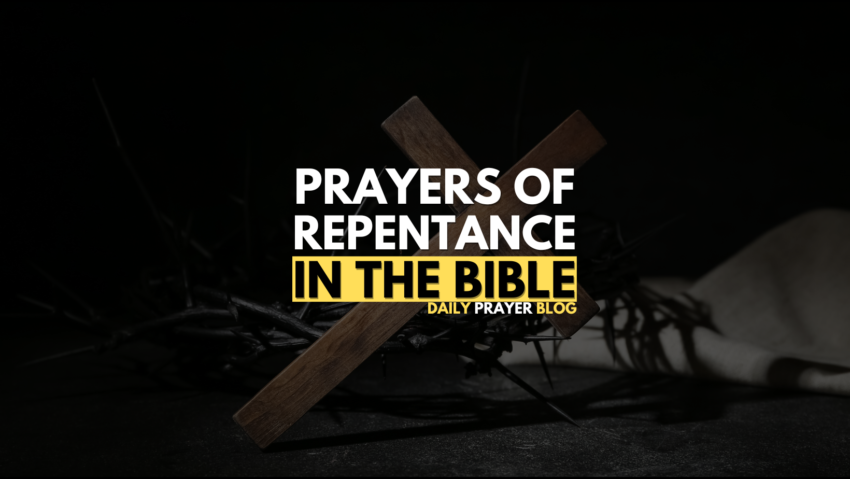In the sacred verses of the Bible, we find solace, Guidance and Gratitude, and above all, a path to redemption through prayers of repentance. These powerful expressions of contrition serve as beacons of hope, offering believers a way to seek forgiveness and cleansing. Let’s embark on a Spiritual Journey through the scriptures, exploring the profound impact of Prayers OF Repentance In The Bible.
Prayer for Repentance and Cleansing: Psalms Unveiled
Psalm 51:1-3 – A Heartfelt Cry for Purity
At the genesis of our exploration lies Psalm 51, penned by King David. This poignant prayer serves as a timeless template for seeking the Power of Forgiveness and cleansing. In a humble plea, David cries out, “Have mercy on me, O God, according to your steadfast love; according to your abundant mercy, blot out my transgressions.”
Transitioning into the depths of remorse, the psalm continues with David’s acknowledgment of his wrongdoing, creating an emotional resonance that transcends time.
Confession and Contrition: Daniel’s Prayer for Redemption
Daniel 9:3-5 – Daniel’s Intercession for a Nation
Moving forward, we encounter the Book of Daniel, where the prophet Daniel utters a prayer that extends beyond personal repentance. In a moment of collective contrition, Daniel acknowledges the sins of his people, seeking forgiveness not only for himself but for the entire nation.
The Humble Plea: Luke 18 and the Tax Collector’s Repentance
Luke 18:13-14 – The Tax Collector’s Humble Supplication
Transitioning to the New Testament, we find a humble tax collector in the Gospel of Luke, offering a prayer that exemplifies genuine repentance. In Luke 18:13, the tax collector, standing far off, “would not even lift up his eyes to heaven but beat his breast, saying, ‘God, be merciful to me, a sinner!'”
Cry for Mercy: 1 John 1:9 and the Path to Cleansing
1 John 1:9 – Confession and Cleansing
1 John 1:9 brings us to the apostle John’s perspective on repentance. With simplicity and clarity, John assures believers that “If we confess our sins, he is Faithful Catholic and just to forgive us our sins and to cleanse us from all unrighteousness.”
God, be merciful to me, a sinner!” (Luke 18:13)

This simple yet profound prayer showcases the essence of repentance. The tax collector doesn’t offer excuses or justifications. He acknowledges his sinfulness and humbly seeks God’s mercy.
Turning Hearts: Joel’s Call to Repentance in Times of Trouble
Joel 2:12-13 – A Call to Return to the Lord
The Book of Joel offers a powerful message about national repentance during challenging times. In the face of natural disasters and societal struggles, the prophet Joel calls the people to return to God with all their hearts (Joel 2:12-14). He emphasizes the importance of:
- Sincere repentance: “Rend your hearts and not your garments, and return to the Lord your God, for he is gracious and merciful, slow to anger, and abounding in steadfast love, and relents from disaster” (Joel 2:13).
- Fasting and prayer: “Therefore thus says the Lord, ‘Yet even now, return to me with all your heart, and with fasting, with weeping, and with mourning'” (Joel 2:12).
The Prodigal’s Return: Luke 15 and the Power of Repentant Words
Luke 15:18-20 – The Prodigal Son’s Return
The parable of the Prodigal Son in Luke 15 illustrates the transformative power of repentance. As the wayward son returns home, he utters words of contrition, “Father, I have sinned against heaven and before you.” The father’s loving response showcases the divine grace awaiting those who sincerely repent.
“Father, I have sinned against heaven and before you. I am no longer worthy to be called your son…” (Luke 15:19)
National Repentance: 2 Chronicles 7:14 and Healing the Land
2 Chronicles 7:14 – A Call for National Repentance
Moving towards the Old Testament, 2 Chronicles 7:14 provides a blueprint for national repentance. The verse emphasizes the collective responsibility of a nation, urging, “If my people who are called by my name humble themselves, and pray and seek my face and turn from their wicked ways, then I will hear from heaven and will forgive their sin and heal their land.”
“If my people, who are called by my name, humble themselves and pray and seek my face and turn from their wicked ways, then I will hear from heaven and will forgive their sin and heal their land.” (2 Chronicles 7:14)
Conclusion:
In the tapestry of the Bible, prayers of repentance form a thread that binds humanity to divine mercy. From the heartfelt cries of David to the collective pleas of Daniel, each prayer invites believers to embrace redemption through humility, contrition, and a sincere desire for cleansing.
FAQs
Yes, the Bible contains prayers addressing various sins, from personal transgressions to national repentance. Each prayer reflects the unique circumstances and heartfelt contrition of the individuals involved.
Repentance is an ongoing process. While there is no fixed frequency, maintaining a humble and contrite heart in daily prayers fosters a continuous relationship with God.
According to the Bible, sincere prayers of repentance are met with God’s mercy and forgiveness. The scriptures emphasize the faithfulness of God to forgive those who genuinely seek Him with a repentant heart.
conclusion
the prayers of repentance in the Bible offer a timeless roadmap to redemption, providing solace and hope to believers seeking forgiveness and cleansing. May these divine words inspire hearts to turn towards God in genuine contrition, embracing the transformative power of repentant prayers.
